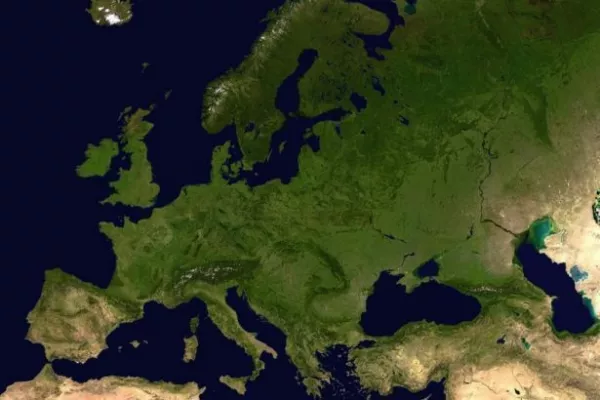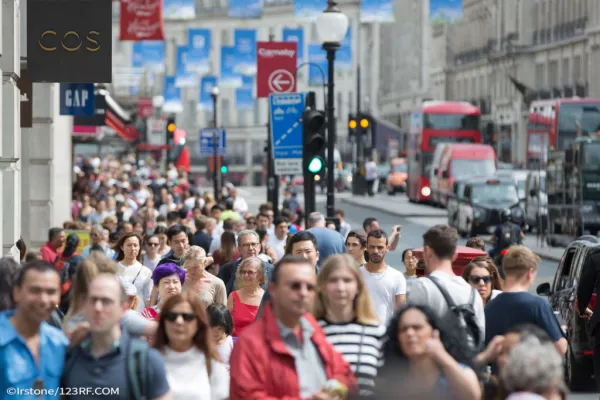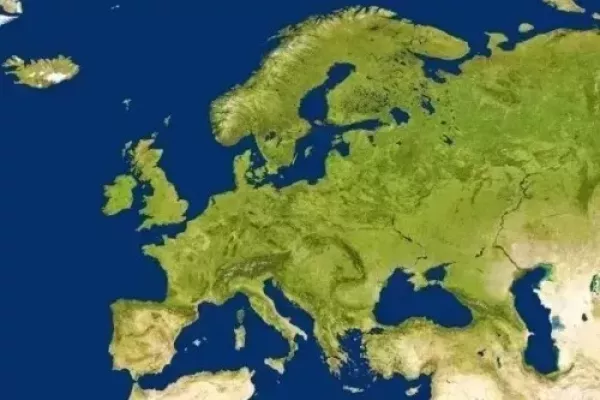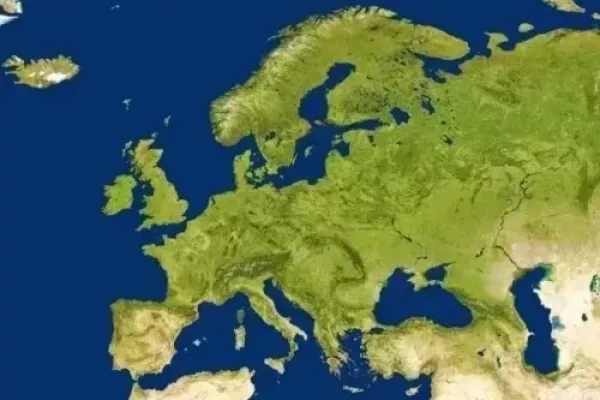Airlines may lose a tax break on jet fuel that has drawn fire from environmentalists, while having to use more non-petroleum alternatives and pay a bigger emissions bill, under major proposals to make Europe the "first climate-neutral continent".
Taking aim at a sector deemed responsible for up to 3% of global emissions, the European Union's executive Commission has said that aviation must do more to contribute to the EU's goal to cut economy-wide net emissions by 55% by 2030, from 1990 levels.
Proposals issued after intense last-minute negotiations inside the EU's Brussels headquarters called for a progressive introduction of taxes on fuels for flights within the 27-nation bloc, which currently escape EU-wide levies.
Climate groups have long criticised the existing tax exemption, while airlines have lobbied to keep it and say badly designed taxes will not cut emissions.
Under the plans, which must be agreed by EU nations, jet fuel would be taxed in line with other transport sectors, following a phased introduction over 10 years to allow the aviation sector to recover from the impact of the COVID-19 crisis.
A separate proposal would force suppliers to blend a minimum of 2% of sustainable aviation fuel (SAF) into their kerosene from 2025, rising to 5% in 2030 and 63% in 2050.
SAF includes bio-based fuels obtained from recycled waste such as used cooking oil or other non-oil sources and - on a much smaller scale so far - hydrogen-based synthetic or e-fuels.
A portion of the total binding target for SAF - 0.7% in 2030 rising to 28% in 2050 - would be reserved for the novel e-fuels, which are currently scarce and costly compared to kerosene.
Parallel restrictions would limit a practice that allows airlines to fly in cheaper fuel from elsewhere for the return trip - a process known as "tankering" - meaning the new SAF quota on suppliers would more easily translate into use by airlines.
In a separate bid to overhaul the EU's carbon market, the Commission proposed phasing out free CO2 permits by 2026 for airlines whose flights within Europe are covered by the scheme.
That would force carriers to pay more for their emissions, a cost that may be passed on to consumers through higher fares.
Brussels gives carriers most of the CO2 permits they need to comply with the carbon market for free, capping their exposure to the price of the permits, which has hit record highs of above 58 euros per tonne of CO2 this year.
Negotiations Ahead
Taken together, the measures would force airlines in Europe to pay a higher price for their emissions and kick-start a market for green jet fuels, which are prohibitively expensive and, as a result, make up less than 1% of jet fuel consumption.
Airlines, which have set out their own 2050 decarbonisation roadmap, reiterated calls for a pact with policymakers in an implicit appeal for government support to help meet the targets.
A4E, which represents major European carriers, said the EU's "Fit for 55" policies threatened the competitiveness of airlines and the tourism industry and warned airlines could end up paying twice for emissions through overlapping measures.
Global airlines body the International Air Transport Association (IATA) said that the EU tax proposal would be counter-productive.
Environmental groups, by contrast, say the EU could do more on items like fuel taxes, which will remain limited to intra-EU flights, and the promotion of the cleanest e-fuels.
"They are making up for decades of inaction to regulate aviation emissions, but don't go far enough," said Andrew Murphy, aviation director at Transport & Environment.
Most of the policies will need to be negotiated and approved by a majority of the EU's 27 countries and the European Parliament, which could take up to two years.
EU tax changes need unanimous approval from EU governments - a daunting political threshold since each country has a veto.
Analysts say decarbonising aviation is more complex than most other modes of transport, since radical new technology is not expected this decade except for the smallest planes, increasing dependence on biofuel and other measures.
Brussels says every sector of the economy must contribute.
Why The Complaints?
The European Union's huge policy package to make good on a pledge to reduce net greenhouse emissions by 55% from 1990 levels by 2030 has stirred opposition from climate campaigners and even within the executive European Commission.
Here's why "Fit for 55", the EU's biggest climate package yet, has been criticised as well as acclaimed.
Is 55% A Fit Target?
In a landmark UN deal struck in Paris in 2015, countries committed to aim to limit atmospheric warming to 1.5 degrees Celsius (2.7°F) above pre-industrial levels, to try to stave off the worst impacts of climate change.
To get on track for this, by 2030 the whole world needs to cut CO2 emissions by about 45% from 2010 levels and reach net zero by 2050, according to the UN Intergovernmental Panel on Climate Change (IPCC).
The EU's 2030 climate target equates to a 46% cut in its greenhouse gas emissions when compared with 2010 levels, analysts at the Rhodium Group say.
Europe struck a delicate balance between poorer, mainly eastern countries that still rely on coal and some wealthier countries that wanted to cut faster, to set the 55% target.
But the United Nations has also offered different metrics - including in a 2019 "Emissions Gap" report. This called for emissions to shrink 7.6% a year between 2020 and 2030, and has since been widely quoted by campaigners who think the EU target is not aggressive enough.
Who Is Unhappy?
Teenage climate activist Greta Thunberg cast doubt on the level of ambition.
"Unless the EU tear up their new #Fitfor55 package, the world will not stand a chance of staying below 1.5°C of global heating. That's not an opinion, once you include the full picture it's a scientific fact. #MindTheGap between words and action," she tweeted.
Greenpeace was another high profile dissenter.
"Celebrating these policies is like a high-jumper claiming a medal for running in under the bar," the group's EU director Jorgo Riss said.
Green politicians in the European Parliament, which had pushed for an emissions cut of 60% by 2030, welcomed the proposals but identified room for improvement.
Why Don't They Like It?
Some of the policies have proposed time horizons of several years, which activists and Green politicians say is too long.
"For all the hype, many policies won't kick in for 10 years or more, like new polluting cars still being sold up to 2035," said Greenpeace's Riss.
Combustion engines are also a bugbear for the Greens/EFA Group in the European Parliament, which called for an end to their sale by 2030.
The inclusion of biomass, produced from burning wood pellets or chips, in its energy plans, has also been divisive.
"Others [other policies] will actually fuel the fire, like labelling the burning of trees as renewable energy," Riss added.
Social Justice
The EU's market for tradable permits to emit greenhouse gas tries to apply the principle that whoever pollutes should pay the price, and in some cases is proposing a gradual shift from giving industries a free quota of these permits.
Airlines, a major beneficiary of these allowances, are due to lose them by 2027 under the new proposals, and other industries would lose the permits they currently receive to help them compete with overseas firms at a faster rate from 2026.
Some campaigners cautioned against concessions to big business while the most vulnerable in society continued to face climate risks.
"Policies need to take into account social considerations, and not only be driven by a market logic, especially when industries keep being subsidised through the continuation of free pollution permits," said Wendel Trio, director of NGO Can Europe.
News by Reuters, edited by Hospitality Ireland. Click subscribe to sign up for the Hospitality Ireland print edition.









